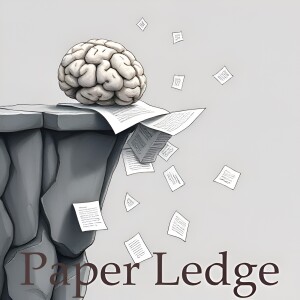

Artificial Intelligence - AdaR1 From Long-CoT to Hybrid-CoT via Bi-Level Adaptive Reasoning Optimization
Hey PaperLedge crew, Ernis here, ready to dive into some brainy brilliance! Today, we're tackling a paper that's all about making AI reasoning smarter and, crucially, faster.
Think about it like this: imagine you're trying to solve a riddle. Sometimes, you need to really think it through, step-by-step, like carefully climbing a ladder. Other times, the answer just clicks – boom, instant enlightenment! That's kind of what's happening with these AI reasoning models.
Lately, these "long-thought reasoning models" – basically, AI that can think through complex problems step-by-step – have been getting seriously good. But there's a catch. All that thinking takes time... like, a lot of time. Imagine having to write out every single step of a recipe, even for boiling water! That's the problem we're facing: efficiency.
This paper points out that not every problem needs that super-detailed, ladder-climbing approach. Some problems are more like that "aha!" moment. Using that long, drawn-out process for every single question is like using a sledgehammer to crack a walnut – overkill! Sometimes, it even makes things worse!
So, what's the solution? Well, these researchers have come up with a clever "adaptive reasoning" strategy. Think of it like a smart chef who knows when to use a fancy technique and when to just chop things up quickly.
They've built a two-stage system:
- Stage One: Hybrid Reasoning. They combine two types of AI models: one that uses those long, step-by-step explanations (they call it "Long-CoT"), and another that's much faster and more direct ("Short-CoT"). It's like having both a detailed map and a GPS shortcut at your disposal.
- Stage Two: Preference Training. This is where the magic happens. They "train" the AI to choose the right reasoning style for the problem at hand. It's like teaching the AI to recognize when it needs that detailed recipe and when it can just wing it. They even teach it to prefer the clearest and most accurate reasoning within each style.
They call this "bi-level preference training". Basically, it's learning at two levels: choosing the right overall approach (long or short), and then optimizing the reasoning within that approach.
The results? Pretty impressive! They found that their method significantly reduced the "inference costs" – basically, the amount of computing power and time needed – while still maintaining accuracy. On some math problems, the AI was able to cut the length of its reasoning in half! That's like finishing your homework in half the time and still getting an A+!
"The average length of reasoning is reduced by more than 50%, highlighting the potential of adaptive strategies to optimize reasoning efficiency in large language models."
This is a big deal because it means we can build AI that's not only smart but also efficient. And that opens up all sorts of possibilities. Imagine faster AI assistants, more efficient data analysis, and even more powerful robots that can think on their feet (or wheels!).
The code is coming soon, so keep an eye on Github.
So, why does this matter to you, the PaperLedge listener?
- For the AI enthusiasts: This is a significant step towards more practical and scalable AI systems. It shows that we can achieve impressive results without requiring massive amounts of computing power.
- For the business folks: More efficient AI means lower costs and faster turnaround times. This could lead to new and improved AI-powered tools for everything from customer service to product development.
- For everyone else: This research helps us understand how to make AI more helpful and less resource-intensive. It's a step towards a future where AI is seamlessly integrated into our lives, making things easier and more efficient.
Now, here are a couple of things that really got me thinking:
- Could this adaptive reasoning approach be applied to other areas of AI, like image recognition or natural language processing?
- How do we ensure that the AI is choosing the right reasoning style for the right reasons, and not just taking shortcuts that could lead to biased or inaccurate results?
That's all for this episode, PaperLedge crew! Keep those questions coming, and I'll see you next time for another deep dive into the world of research.
Credit to Paper authors: Haotian Luo, Haiying He, Yibo Wang, Jinluan Yang, Rui Liu, Naiqiang Tan, Xiaochun Cao, Dacheng Tao, Li Shen
More Episodes
All Episodes>>Create Your Podcast In Minutes
- Full-featured podcast site
- Unlimited storage and bandwidth
- Comprehensive podcast stats
- Distribute to Apple Podcasts, Spotify, and more
- Make money with your podcast












